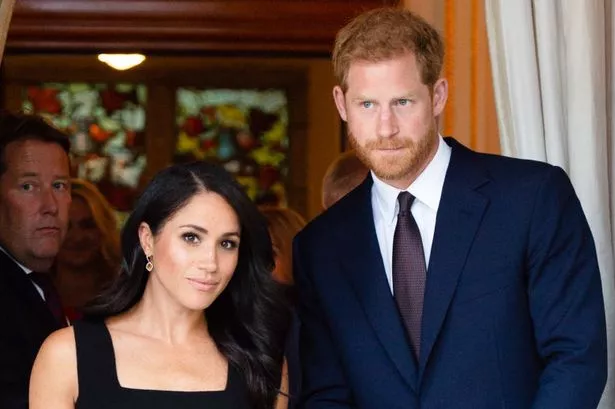Prince Harry’s recently released Netflix docuseries, The Heart of Invictus, has sparked a wave of reactions from both royal experts and fans.
The documentary, which sheds light on the Invictus Games, has been met with mixed reviews, with some criticizing Harry for seemingly taking a dig at the royal family.
One of the notable critics is royal biographer Angela Levin, who took to Twitter to share her thoughts after watching the documentary.
She described it as “extremely moving” to witness the strength and resilience of the participants, but questioned Harry’s constant complaints about his own life.
Levin concluded by asking how he could continuously moan about his experiences when so many others have faced mental health challenges without the means to seek help.
Another critic, Australia radio shock jock Kyle Sunderlands, launched a scathing attack on Harry during a segment on the Kyle and Jackie O show.
Sunderlands expressed little sympathy for the prince, dismissing him as a “little bitchy prince” who constantly seeks pity.
Drawing from his own experiences of living on the streets as a teenager, Sunderlands argued that Harry should move on from his past traumas, suggesting that many people have faced similar hardships without the same resources.
Sunderlands even questioned the authenticity of Harry’s claims about his military service, specifically his assertion that he killed 25 people while serving in Afghanistan.
He suggested that Harry was protected from danger due to his status as a prince, casting doubt on his firsthand experiences of combat.
Despite Harry’s deployment and service in Afghanistan, Sunderlands challenged the notion that he could have developed post-traumatic stress disorder (PTSD) without witnessing significant action.
Drawing a comparison between his own struggles and Harry’s, Sunderlands emphasized that he had overcome adversity without dwelling on it.
He humorously highlighted his current success as evidence that one can overcome hardships without constant complaints.
Sunderlands concluded by suggesting that the Sussexes should pursue real jobs instead of focusing on creating podcasts and documentaries about their family drama.
In addition to individual criticisms, several war heroes and ex-military chiefs have also spoken out against Harry’s claims.
They argue that the media, including outlets like The Sun, have consistently supported British troops wounded in Afghanistan.
Lord Richard Dunnett, a former Forces commander who worked closely with Harry during his military service, emphasized that recollections may vary.
He noted that while Harry may recall the support he and his brother William offered to Help for Heroes, there was already a significant shift in public support for service personnel.
Prince Harry’s docuseries has undeniably sparked a range of reactions from experts and fans alike.
While some have criticized him for seemingly targeting the royal family, others have praised the documentary for shedding light on the struggles and triumphs of the participants in the Invictus Games.
As the debate continues, it remains to be seen how this latest project from the Duke of Sussex will shape public opinion and discussions surrounding mental health and military service.
